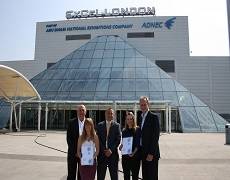April 17, 2015
Employers neglecting to check ergonomic safety of office workers 0
 The widespread adoption of mobile devices, not to mention the development of the Internet and uptake of flexible working, may render the Health and Safety (Display Screen Equipment) Regulations 1992 hopelessly out of date, but they continue to oblige employers to ensure that employees’ workstations are assessed for ergonomic comfort and safety. A survey by Fellowes claims over half of companies (62%) acknowledge they have a duty to foster the physical and mental health of their staff, but found that 31 percent of workers were left in charge of conducting their own self-assessments. In over a quarter of organisations (27%), staff raised concerns that their monitor or display screens were not appropriate and more than one fifth (21%) weren’t aware of any legal requirements when assessing a display screen.
The widespread adoption of mobile devices, not to mention the development of the Internet and uptake of flexible working, may render the Health and Safety (Display Screen Equipment) Regulations 1992 hopelessly out of date, but they continue to oblige employers to ensure that employees’ workstations are assessed for ergonomic comfort and safety. A survey by Fellowes claims over half of companies (62%) acknowledge they have a duty to foster the physical and mental health of their staff, but found that 31 percent of workers were left in charge of conducting their own self-assessments. In over a quarter of organisations (27%), staff raised concerns that their monitor or display screens were not appropriate and more than one fifth (21%) weren’t aware of any legal requirements when assessing a display screen.

























May 7, 2015
Understanding and overcoming the objections to sit stand workstations
by Marc Bird • Comment, Furniture, Wellbeing, Workplace design
More →